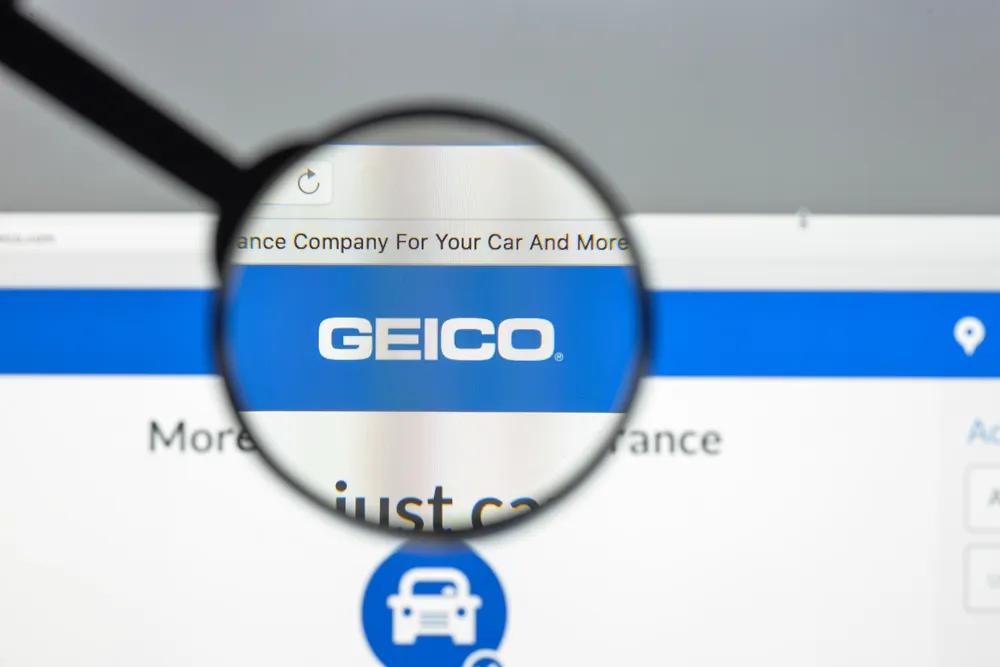If you're one of the millions of Americans with auto insurance through GEICO, you've likely seen the company's ads touting its "accident forgiveness" benefit.
The promise is simple: your insurance rates won't increase after your first at-fault accident if you qualify for accident forgiveness.
However, GEICO may not be keeping that promise, according to a new class action lawsuit filed in Texas, which alleges the insurer uses deceptive tactics to raise rates on accident forgiveness customers - negating the key perk they thought they had purchased.
Understanding GEICO's Accident Forgiveness Program
So, what is accident forgiveness? Here's how GEICO describes the product on its website:
“With Accident Forgiveness on your GEICO auto insurance policy, your insurance rate won't go up due to your first qualifying accident. We waive the surcharge associated with the first at-fault accident caused by an eligible driver on your policy.”
In other words, if you have accident forgiveness and cause a crash or total loss, GEICO promises not to raise your premium as they usually would after an at-fault wreck.
For safe drivers who are worried about one mistake costing them for years to come, it's an appealing benefit.
Many consumers who purchase the product assume their policy fully protects them against rate hikes after their first crash. However, a new lawsuit alleges this may not be the case.
Class Action Complaint Against GEICO Explained
On February 25, 2025, GEICO policyholder Christopher Cude filed a class action complaint against his insurer in the U.S. District Court for the Northern District of Texas.
Cude’s lawsuit makes some startling accusations about how GEICO actually handles accident forgiveness.
Renewal premium doubled
According to the complaint, GEICO raised the plaintiff's rates after his first at-fault crash, contradicting the company’s explicit promises. Cude’s premium reportedly skyrocketed by 91% following what he described as merely a minor fender bender.
Obscure policy surcharges
When Cude called GEICO to ask how his rates could nearly double when he had accident forgiveness, the company claimed he hadn't experienced a rate increase but rather a “surcharge.”
GEICO had added a "penalty fee" (a.k.a. surcharge) to Cude's base premium. However, the plaintiff argues that the insurer merely renamed what was clearly a rate increase, attempting to dodge its promise not to raise his premium after the first accident.
The plaintiff also contends the company’s “term distinctions” are ambiguous since customers pay way more after the company supposedly "forgives" the accident.
Deceptive Practice Claims
The following allegations form the core of Cude's lawsuit.
Bait-and-switch
According to the plaintiff, GEICO lures customers with the promise of accident forgiveness, then pulls a bait-and-switch by imposing ambiguous surcharges, which have the same effect as a rate increase.
Cude claims policyholders who thought they were protected against premium increases “find out the hard way” that they're ”on the hook after all.”
Statute violation and breach of warranty
Cude also accuses GEICO of violating the Texas Deceptive Trade Practices Act through its “surcharge scheme.” The plaintiff further alleges a breach of the implied covenant of good faith and fair dealing - in essence, that GEICO acted unethically and broke the trust policyholders placed in it.
According to the complaint, GEICO deliberately subverts accident forgiveness and misleads customers by playing a “shell game” with safety-conscious buyers.
Why Cude Seeks a Class Action
Cude seeks justice not only for himself but for all Texas policyholders who allegedly fell victim to GEICO's deceptive practices.
His class action seeks to represent any Texas policyholder who:
- Purchased GEICO car insurance with accident forgiveness.
- Got into an at-fault accident that the company should've forgiven.
- Then had their premium goes up afterward through a "surcharge" or other means.
If the courts certify his lawsuit, thousands of consumers who've experienced the same unfair practices would have the chance be part of the class taking on GEICO as a unified group.

Compensation Sought for Unfair Charges
This case seeks monetary damages to compensate Texas policyholders for all the surcharges and rate increases they shouldn't have paid.
It also demands punitive damages to penalize GEICO for the alleged deception.
More significantly, Cude’s lawsuit requests an injunction requiring GEICO to stop the surcharge scheme and honor the actual terms of accident forgiveness moving forward.
What to Do If You Think GEICO Misled You
If you see a sudden, unexplained spike in your GEICO premiums after an accident, don't just accept it at face value.
Here are some steps you can take:
- Review your policy documents: Go back and read the fine print about accident forgiveness terms. What does it actually promise? Are there any exclusions or limitations you missed?
- Contact your insurer: If GEICO raises your premiums after a first-time accident, and the insurer shouldn't have based on your policy, immediately contact the company. In writing, ask for a clear explanation of why your premium increased and under what authority the company raised it.
- Escalate your complaint: You can file a complaint with your state's insurance department if you're unsatisfied with GEICO's response. These regulators compel insurers to follow the law and treat consumers fairly.
- Explore legal options: If you suspect your insurer misled you, it's worth consulting with an attorney who specializes in bad-faith cases involving insurance providers. Legal counsel can review your situation and advise you on potential legal remedies.
Remember, you have rights as an insurance policyholder. Don't be afraid to ask tough questions and demand transparency from your carrier. And if you think you've been misled or overcharged, know you have options to fight back.
It's worth watching the progress of this class action closely if you're a GEICO customer with accident forgiveness because it could impact your rights and rates down the line.
You should always read the fine print on your policy and take action when your insurer tries to jack up your premiums unfairly.
And if you suspect you've been deceived or overcharged, don't be afraid to explore your legal options.




Add Comment